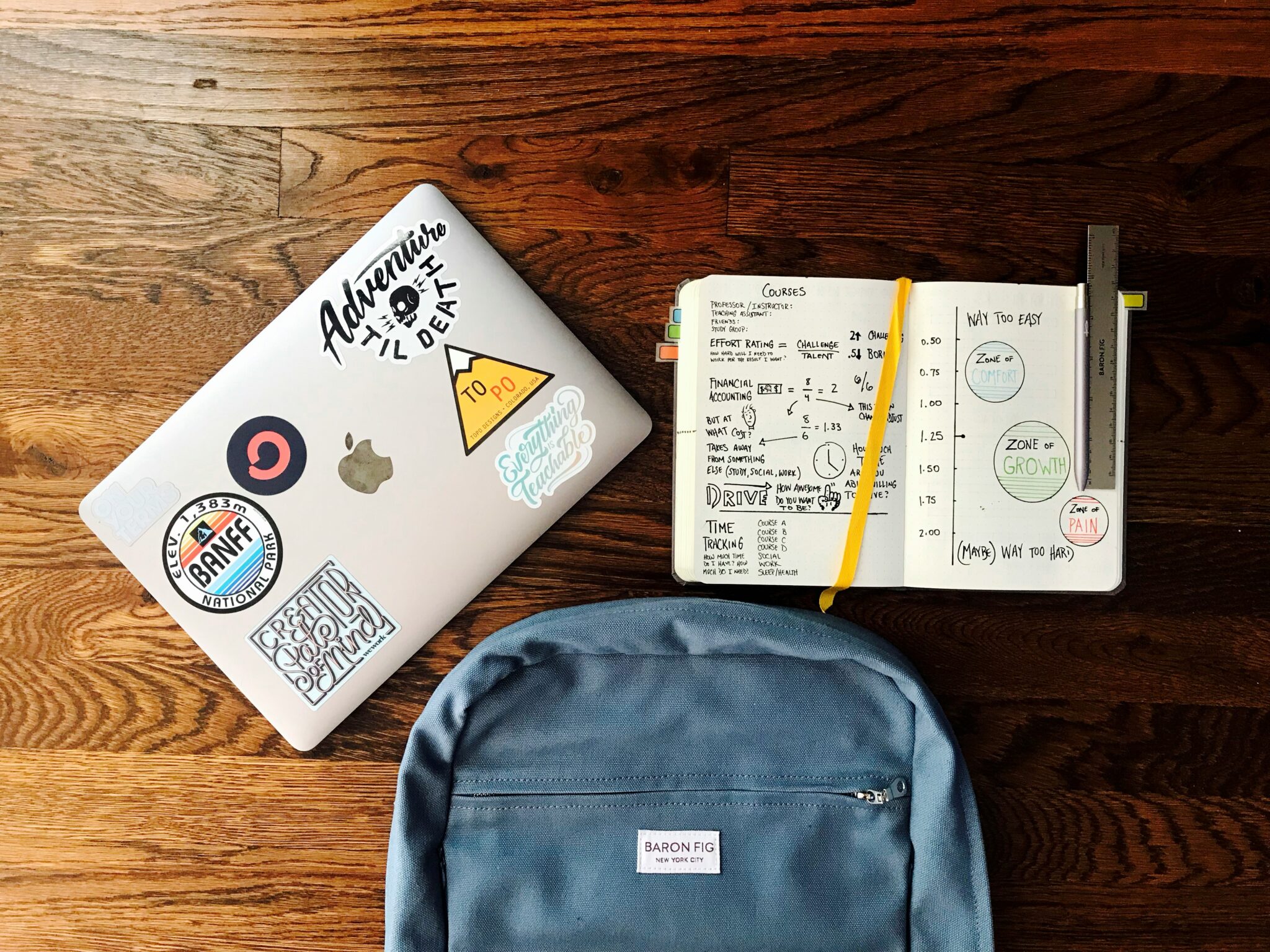As a student with a disability who is entering college, you will likely want to know if your IEP, including accommodations and services, will apply in college. There are many differences in how special education advocacy works in high school versus how it works in college, where “special education” no longer exists in the same way. That does not mean, however, that you will not be able to access reasonable accommodations in college and graduate school. This article will explain the differences between special education in K-12 settings and in college, where your IEP will not automatically apply but will be taken into consideration if you apply for disability services.
Understanding IEPs and College Disability Services
- IEPs or 504 plans are not valid once students graduate from high school or age out of the system at 21, and those plans don’t “transfer” to college.
- IEPs essentially “expire” once students are out of high school since IDEA (Individuals with Disabilities Education Act) does not apply to college students.
- In K-12, the main law under which children receive special education services is IDEA- The Individuals with Disabilities Education Act. It is IDEA which entitles students in K-12 settings to a Free and Appropriate Public Education (FAPE) in the Least Restrictive Environment (LRE). All states have rules and regulations about how IDEA is enacted, and other laws which outline how the rights of children with disabilities will be upheld in educational settings. IDEA mandates that school districts provide any necessary supports, services, program modifications, and accommodations that a student needs to access the curriculum. This means that many students receive a high degree of services and supports, and they are not required to achieve any particular level.
- Colleges are covered by Section 504 of the Rehabilitation Act and the Americans with Disabilities Act (ADA), which require colleges to provide accommodations for students with disabilities.
- Disability services offices will write a Letter (or email) of Accommodation (called a “LOA” or “EOA”) that students have to deliver to their professors.
Accessing Disability Services in College
- Students need to formally request accommodations through their school’s disability services office.
- Colleges and universities do not have to supply accommodations if they drastically change the curriculum of the class.
- Students with hidden disabilities may have to show documentation proving they have a disability and need accommodations.
- Some schools may only recognize documentation if it was done within the last three years.
Differences Between High School and College Disability Services
- Colleges don’t have the same legal obligations as high schools, and don’t have to provide the same level of supports and services.
- Colleges must follow federal civil rights laws, including Section 504 of the Rehabilitation Act of 1973 and the Americans with Disabilities Act (ADA).
- Colleges provide accommodations to students with disabilities under ADA, but may not provide the same level of support as high schools.
- There are no “case managers” in college, and the disability services office will work with students to determine “reasonable” accommodations.
- Public education is mandatory for K-12, in that all states must provide free and appropriate public education (FAPE) to all students in grades K-12, and in most states, it is mandatory for students to attend school at least until the age of 16.
- College is much different- attending college is not only not mandatory, but it is by application only and is often costly, and there is no requirement that anyone educate you at that level. As such, college settings require students to be much more independent, proactive, and participatory than in K-12 settings, even when students have disabilities. The presumption is that if you can attend college, then you can participate in your own education to the extent that you can access services and accommodations you need.
- In the K-12 setting, the adults set up IEP meetings, create accommodations and service recommendations, and discuss progress towards goals- all without the student’s involvement through much of their academic career. Even in high school, when students are able to attend IEP meetings, many students choose not to for a variety of reasons: anxiety, fear, ambivalence, perceived stigma, or feeling misunderstood or alienated from the school and/or IEP process. I have worked with students who graduate from high school after receiving accommodations for years, and never attended a single CSE meeting. Students with this experience never really know, then, where their accommodations come from. They simply get handed their services and accommodations. This is fine to some extent, and there is nothing inherently wrong with students getting access to what they need without understanding the machinations behind it all. However, for students who will continue into secondary education programs, this lack of knowledge, understanding, experience, and maybe even empowerment can have consequences in their subsequent academic and life settings.
Communicating with Professors and College Staff

- In college, students will need to contact disability services themselves, apply for accommodations themselves, and meet with someone who will determine what accommodations they should get- themselves. What was previously done by adults for students in high school is now the student’s responsibility.
- Additionally, in college settings, it is most common that students will have to let their professors know themselves that they have accommodations and which ones, and students will even have to remind professors when it’s time for an exam, an assignment, or other situation in which those accommodations are required. This is, again, an inverse from the k-12 setting, wherein the CSE provides teachers with student IEPs, and teachers always know the exact nature of student needs, goals, services, and supports because it is all documented in the IEP.
- Students should proactively review with each professors what their accommodations mean in their class, and how to best communicate with professors when they need their accommodations.
Legal Protections and Education Laws
- Section 504 of the Rehabilitation Act of 1973 and the Americans with Disabilities Act (ADA) ensure that colleges and other postsecondary schools treat students with disabilities equally.
- The ADA applies to schools that don’t receive federal funding, making it a broader law than Section 504.
- Colleges are not required to provide an accommodation or modification that would result in a fundamental alteration of their programs.
- Beyond the idea that college students are now young adults who should be navigating their futures with as much autonomy as possible, there are various laws which govern special education in K-12 public schools which differ in college and university settings.
- IDEA no longer applies when a student graduates high school and chooses to attend college. In colleges and universities, students may be able to receive various accommodations via Section 504 of the Rehabilitation Act as well as the Americans with Disabilities Act (ADA). Section 504 essentially states that students with disabilities cannot be discriminated against by academic institutions because of their disability, while the ADA requires that postsecondary schools provide necessary accommodations to a student with a disability.
Accommodations and Modifications in College
- Accommodations are supports or services that allow students to access the curriculum, while modifications change the content taught or any of the expectations for students’ performance.
- Colleges may choose to provide modifications and other support services, but they’re not required by law.
- Some common accommodations include spellcheckers or calculators, note-taking assistance, and extended time for exams.
- Colleges will generally not provide specialized instruction to students with disabilities.
Preparing for College and Disability Services
- Students should review their IEP or 504 plan to identify the accommodations that were most helpful to them.
- Students should prepare to discuss their accommodation needs and any concerns they may have with the disability services coordinator.
- Students should think ahead and talk with their case manager to begin phasing out high school accommodations that won’t be available in college. Colleges will provide reasonable accommodations when they are needed, but the type and extent of the accommodations will be less than were available in high school.

Next Steps and Resources
- Students should locate the office or person in charge of disability accommodations at their college.
- Students should fill out a form that asks them to list the accommodations they’re requesting, and also to describe their disability and how it affects them.
- Students can seek support from family and friends, as well as independent disabled student groups.
- Students with learning disabilities and IEP accommodations in high school should focus on achieving college readiness by learning study, time-management, communication, and other critical academic skills.
Contact The Savvy Tutor today or call (914) 523-8024 now to get your child on the right path to reaching their full potential.
